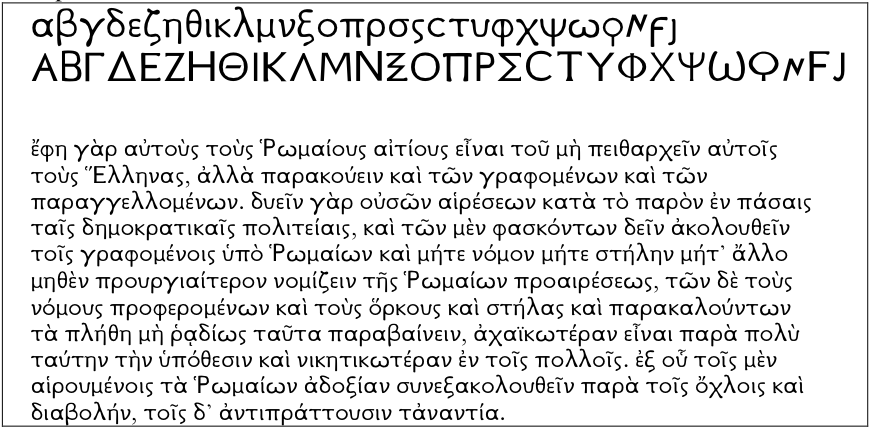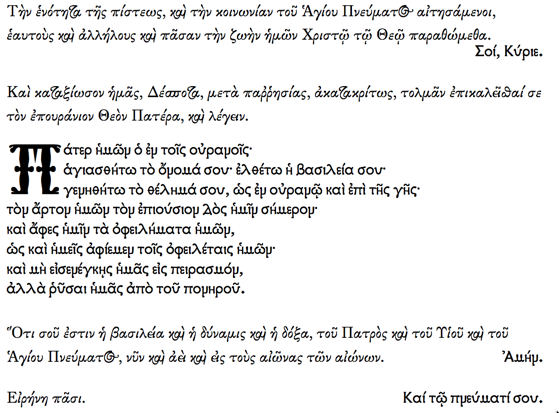I wish I knew. This is what I get from the Googles.
Francophone Balkans? ‘Outsider’ Membership in La Francophonie and Other Language-Based International Organisations speculates that it’s because French is such a prominent foreign language in Greek education. Which explains why Romania is in the Francophonie. And French was indeed the default foreign language in Greece—until WWII. Since then, it’s been so uniformly English, it’s not funny.
Hold that thought.
Can we get any hints from the blog of Η Γαλλοφωνία στην Ελλάδα – La Francophonie en Grèce [The Francophonie in Greece]?
The blog reproduces the announcement from the Greek Foreign Ministry at the time:
Η απόφαση της Ελλάδος για την ένταξή της στη Γαλλοφωνία υπαγορεύθηκε από την εκτίμηση της δυνατότητας πρόσβασης σε ένα σημαντικό forum με κοινή γλώσσα – τα γαλλικά – και έναν χώρο κοινών αξιών και αλληλεγγύης, του οποίου βασικά στοιχεία και στόχοι είναι η προώθηση της δημοκρατίας, του κράτους δικαίου και του σεβασμού των ανθρωπίνων δικαιωμάτων, η προώθηση της ειρήνης και ασφάλειας, καθώς και η προστασία της πολιτιστικής κληρονομιάς και η υποστήριξη της πολιτιστικής και γλωσσικής διαφορετικότητας. Ακόμα και η επιβίωση των εθνικών πολιτισμών στηρίζεται εν πολλοίς στη διαφύλαξη αυτών των αρχών.
The decision of Greece to join the Francophonie was dictated by her appreciating the opportunity to access an important forum with French as a common language, and a space with common values and solidarity, whose basic elements and aims are the promotion of democracy, the rule of law and respect for human rights, promotion of peace and security, as well as the protection of cultural heritage and support for cultural and linguistic diversity. The very survival of national cultures is supported in many ways by preserving these values.
Wade past the diplo mumbo jumbo, and focus on the italicised bit.
Diversity, eh? An odd thing for Greece to say, when its attitude to linguistic diversity within its borders has been… well, it’s been a lot like France’s. But the linguistic diversity of Arvanitika and Aromanian is not what that last sentence is talking about, is it? So what linguistic diversity are they talking about?
The colophon of the blog says:
20 Μαρτίου: Διεθνής Ημέρα Γαλλοφωνίας
Η Ελλάδα μέλος της Γαλλοφωνίας από το 2004
Με τη συμμετοχή μας στη Γαλλοφωνία στηρίζουμε την πολυγλωσσία και μέσω αυτής την ελληνική γλώσσα
20th of March: International Francophonie Day
Greece has been a member of Francophonie since 2004.
By participating in Francophonie we support multilingualism, and through that, the Greek language.
Hm. Getting a lot warmer.
Euractiv, a EU affairs blog post from the time Greece joined, said at the time:
Greece has become an associate member of the OIF, a club for French-speaking countries. The move is seen as part of efforts to stave off the growing domination of English in the EU.
[…]
An official from the Greek Perm Rep in Brussels told EurActiv that the idea was to “reinforce the plurality of languages within the EU. We safeguard our own language by making room for more languages to be spoken”.
The move is widely seen as part of efforts to prevent a single language, namely English, from overly dominating the EU.
I think you have your answer. It’s political.
Greece joined in November 2004; George “Jeffrey” Papandreou Jr’s Socialists were voted out, and Kostas “the Calf” Karamanlis Jr’s Conservatives were voted in in March of that year; the Olympics were in August.
Greeks more knowledgeable than I about Greek politics will have to tell me what kind of chess the Greek Foreign Ministry was playing, and is playing now. But Greece certainly isn’t the only observer in the Francophonie with no immediately obvious reason for being there.



